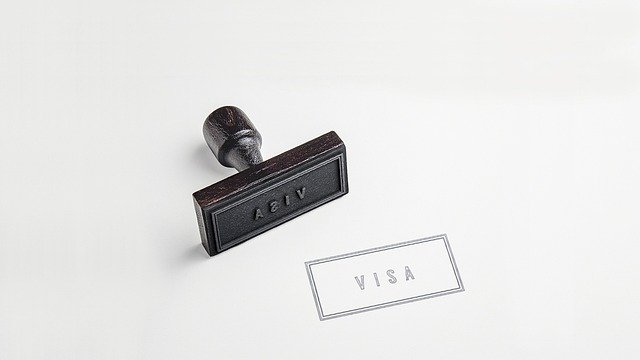Unlock Your Dream Career: Explore Diverse Work Opportunities in Italy
Understanding the legal framework and administrative requirements for foreign nationals considering employment in Italy is essential. This article outlines visa procedures, documentation requirements, credential recognition processes, and practical considerations. The content is strictly informational and does not advertise, suggest, or guarantee any employment opportunities. All information is general in nature and subject to change based on current Italian immigration and labor laws.

Sectors That Have Historically Employed Foreign Workers
Certain sectors in Italy have historically included foreign workers in their workforce, though this reflects past patterns and does not indicate current availability. Tourism and hospitality have employed international staff in various regions. Information technology roles have existed in some organizations. Engineering positions have appeared across industries with specific qualification requirements. Healthcare professions exist but require extensive credential verification and licensing. English language instruction has occurred in private educational settings. Seasonal agricultural work has existed in certain rural areas. These are historical observations only and do not represent current employment availability, future opportunities, or any guarantee of positions. Economic fluctuations, policy changes, quota limitations, and organizational decisions affect employment continuously. No statement in this article should be interpreted as indicating available positions or employment prospects in any sector or region.
Legal Requirements for Employment Authorization
Foreign nationals seeking to work legally in Italy must complete specific administrative procedures. Non-EU citizens require work authorization obtained before entering Italy. The process typically involves an Italian employer submitting authorization requests to Italian authorities. Applications are evaluated based on annual quotas, labor market assessments, and eligibility criteria that change regularly. If approved, the foreign national applies for a work visa at an Italian consulate. Required documentation includes a valid passport, authorization decree, accommodation proof, and financial documentation. Upon entering Italy, individuals must apply for a residence permit within eight working days at the local immigration office. EU citizens follow different procedures under freedom of movement provisions but must register for extended stays. Self-employment requires separate procedures including business registration and tax compliance. Processing times vary significantly. Requirements change based on legislative updates. This information is general and may not reflect current procedures applicable to individual circumstances.
Professional Application Standards in Italy
Professional application materials in Italy follow certain conventions, though practices vary by organization. The Europass CV format provides a standardized template. Italian CVs may include professional photographs, though this varies by industry. Language proficiency should be documented using recognized frameworks. Educational qualifications should list institutions and completion dates. Professional experience is typically presented chronologically with role descriptions. Interview processes vary by organization and may reflect formal communication styles. Professional attire and punctuality are standard business expectations. Organizational research and question preparation demonstrate professional engagement. Understanding cultural communication differences may inform professional interactions. Post-interview follow-up is considered professional courtesy. These elements relate to professional presentation only and do not influence employment outcomes, which depend on organizational needs, qualifications, competition, and factors beyond individual control.
Educational Credential Recognition and Language Requirements
Foreign educational qualifications often require official recognition by Italian authorities through equivalenza or equipollenza processes. This involves submitting credentials to relevant ministries for evaluation. Processing times vary and can extend several months. Requirements differ based on qualification type and issuing country. Regulated professions require specific licensing or registration with professional bodies. Each profession has distinct requirements that change periodically. Language proficiency affects workplace integration significantly. Most Italian workplaces operate in Italian. The Common European Framework of Reference provides standardized proficiency levels. Professional environments typically require intermediate to advanced proficiency, though requirements vary. Language training is available through universities, private schools, and online platforms with varying costs and timeframes. Verifying current recognition requirements and language expectations through official channels is necessary for individual circumstances.
Methods for Researching Employment Information
Researching employment information in Italy involves various channels, though no method indicates opportunity availability or guarantees outcomes. Online platforms including InfoJobs, Indeed Italia, and LinkedIn display listings from organizations. Listing presence does not indicate current availability or individual suitability. Regional and sector-specific websites exist. Networking occurs through professional associations and industry events. Recruitment agencies offer services with varying focus areas and structures. Some individuals submit direct applications to organizations, though response rates vary and many do not accept unsolicited materials. Temporary agencies provide short-term placements. Internships may offer workplace experience but do not guarantee employment. Professional profiles serve as presentation tools. Research duration and outcomes vary based on qualifications, language skills, economic conditions, and individual circumstances. No method guarantees results or indicates employment availability.
Practical Considerations for Residence in Italy
Residing in Italy involves practical matters beyond employment authorization. The Italian tax system applies progressive rates with regional and municipal variations. Employers typically withhold taxes, though individuals remain responsible for understanding obligations. Healthcare access requires registration with local health authorities after obtaining residence. Accommodation costs vary significantly by region and city. Rental agreements often require deposits and guarantor arrangements. Bank accounts require residence documentation and tax identification. Workplace culture may differ in communication styles, organizational structures, and work-life approaches. Regional differences exist across Italy in economic conditions and cultural practices. Adaptation involves challenges including language barriers, administrative complexity, and cultural adjustment. Individual experiences vary based on personal circumstances, location, and numerous factors. No guarantees exist regarding adaptation or experiences.
Conclusion
This article provides general information about legal procedures and administrative requirements related to working in Italy as a foreign national. It is strictly informational and does not advertise, imply, suggest, or guarantee employment opportunities of any kind. No job openings, hiring activities, or employment prospects are referenced or implied. Employment outcomes depend on individual qualifications, economic conditions, organizational needs, and factors beyond prediction. Information presented is general and may not reflect current regulations or individual circumstances. Immigration laws and administrative processes change frequently. Consulting official sources and qualified professionals is essential for current information. No outcomes are guaranteed regardless of qualifications or preparation.




